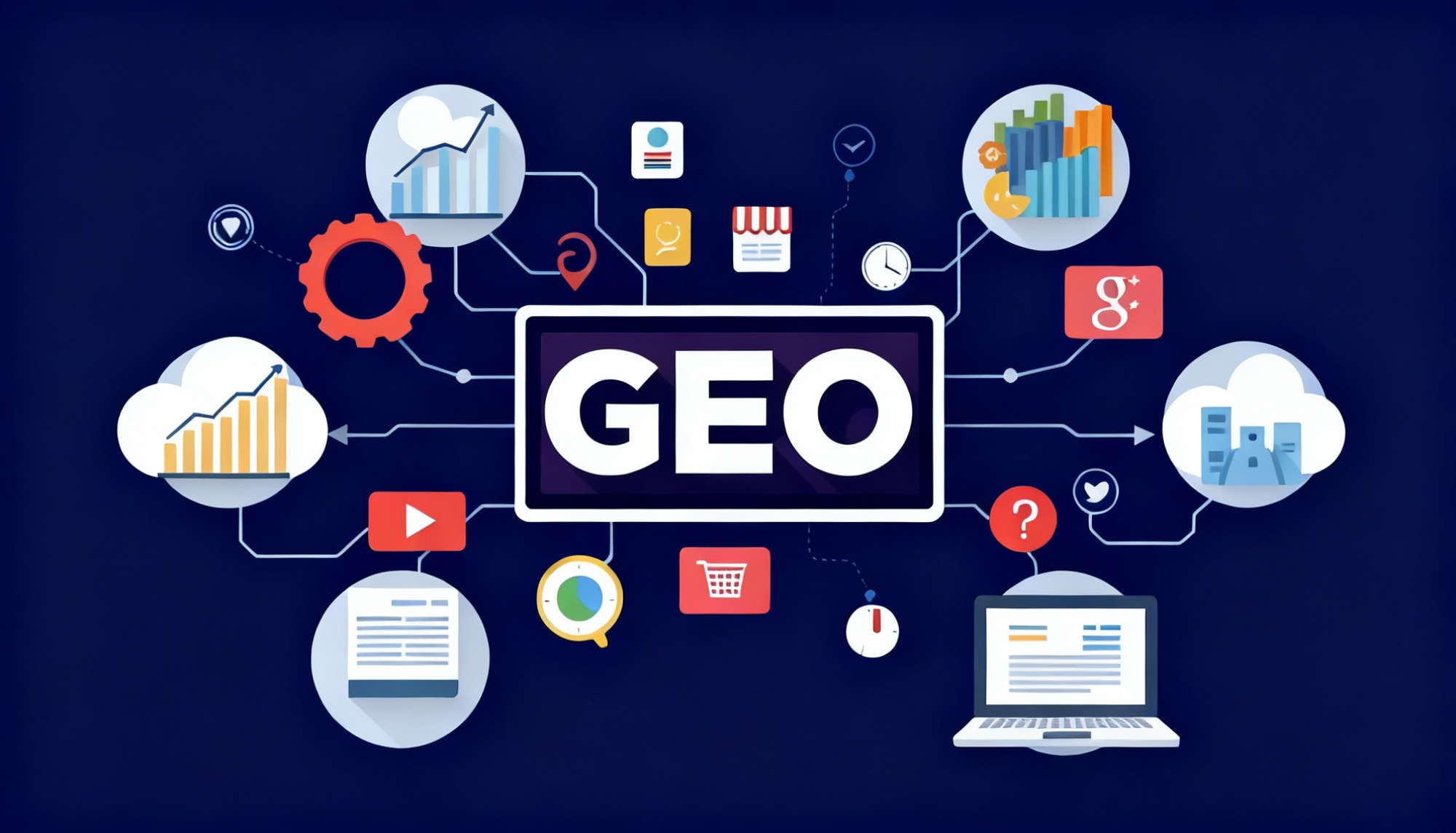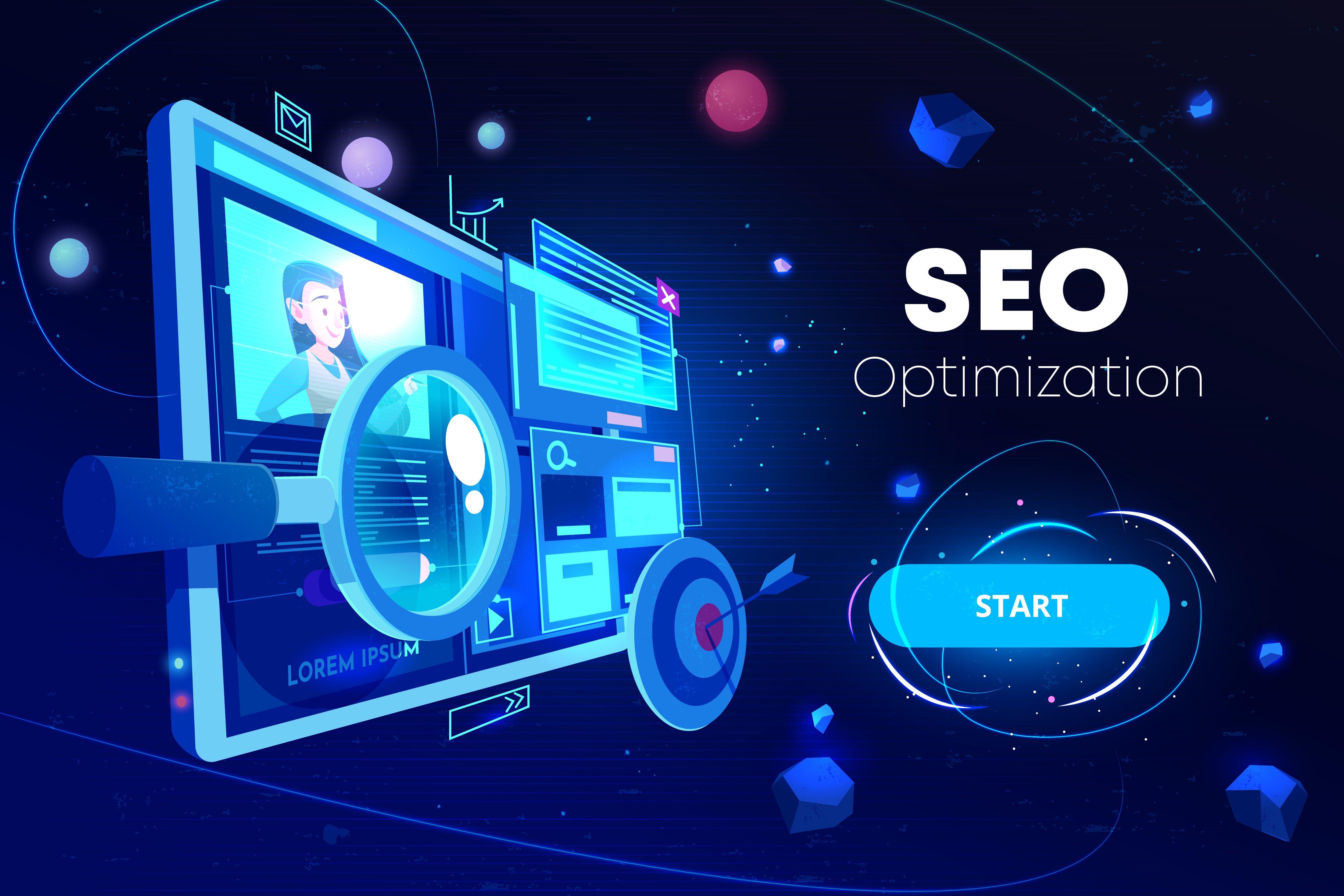In an era where businesses seek to establish strong online presences, digital marketing agencies have emerged as indispensable allies. They provide a plethora of services ranging from SEO to social media management, helping businesses enhance their visibility, boost their engagement, and increase their sales by reaching their target audiences effectively. However, starting a digital marketing agency might seem like a daunting task, given the highly dynamic and competitive nature of the industry. This guide aims to demystify this process and provide you with a step-by-step roadmap on how to start a digital marketing agency. It will explore key aspects such as assessing the viability of the business, developing your skills, starting the agency, identifying services, choosing a niche, defining an ideal client, registering your business, creating a pricing model, effective lead generation tactics, building a team, and answering frequently asked questions.
Is Digital Marketing a Good Business to Start?
Absolutely! With the exponential growth of internet usage in recent years, more brands are turning to digital marketing to reach their target audience. Not only do digital marketing agencies have the potential to generate high profits, but they also allow for flexibility with the ability to operate from anywhere in the world. Businesses across diverse industries seek out digital marketing assistance, making this field ripe with possibilities.
Assessing Demand for Your Services
Before you plunge into starting a digital marketing agency, it's crucial to assess the demand for your services. Ensure there's a need for what you're offering and that businesses are willing to pay for these services.
- Market Research: Start by conducting thorough market research. Identify the most sought-after digital marketing services. SEO, content marketing, PPC advertising, and social media management are some of the high-demand areas in digital marketing.
- Competitor Analysis: Analyze your competition. See what services they offer, their pricing model, and how they market themselves. Remember, it’s not just about matching what your competitors do but finding ways to offer something unique or more valuable.
- Identifying your Ideal Clients: Understand who your ideal clients would be. Are you targeting small businesses, startups, or large corporations? Each type of client presents different needs and budgets, which will impact the services you offer and your pricing.
- Industry Trends: Stay updated with industry trends. Digital marketing is continuously evolving, and new tools, platforms, and strategies emerge frequently. Recognizing these trends can help you adapt your service offerings accordingly.
By carefully assessing the demand for your services, you can strategically position your digital marketing agency to attract potential clients and succeed in the competitive market landscape.
Producing Results for Clients
At the end of the day, clients hire digital marketing agencies because they want results. Whether it's higher search engine rankings, increased website traffic, more leads, or boosted sales, your ability to achieve tangible outcomes for your clients is critical to your agency's success.
Firstly, focus on building a deep understanding of your clients' requirements and business objectives. Communicating effectively with clients from the start ensures that your marketing campaigns align with their goals.
Secondly, remember the importance of utilizing data in digital marketing. Use advanced tools and technologies to track and measure your marketing efforts. This data-driven approach provides insights into what's working and what needs improvement in your campaigns. It allows you to make informed decisions and optimize your strategies for better performance.
Lastly, transparency is key. Regularly share performance reports with your clients. Keeping them looped into the process not only establishes trust but also allows them to see the value and impact of your services on their business.
Remember, producing results for clients isn't just about immediate improvements. It's equally about driving long-term growth and positioning the client's business for sustainable success in the digital world.
Building Your Digital Marketing Skills and Expertise
When you start a digital marketing agency, your skills and expertise form the backbone of your enterprise. Stay updated in digital marketing best practices, trends, and innovative strategies. Regularly upskill yourself and your team through online courses, industry events, webinars, and certifications. Professional development not only enhances your services offering but also positions your agency as a trusted and proficient industry expert.
Gaining Experience and Staying Up-to-Date
To earn credibility and attract clients, it's essential to gain experience prior to establishing your digital marketing agency. Working at an agency, freelancing, or even handling the digital marketing for your own projects can help you acquire the skills and knowledge necessary to run your own agency successfully. Here are some ways to do this:
- Jobs and Internships: Look for opportunities at digital marketing agencies. These roles give you exposure to various aspects of the business, from strategy development to client handling. They also allow you to understand how successful agencies are run.
- Freelancing: Freelancing or consulting in digital marketing can provide hands-on experience with managing client projects, building strategies, and producing results.
- Personal Projects: Whether it's your blog, online store, or social media accounts, personal projects can act as a practical training ground. These projects allow you to experiment with different strategies, tools, and platforms.
Besides gaining experience, staying updated with the latest trends and tools in digital marketing is crucial. Here's how you can do that:
- Online Training and Certification: Platforms like Google's Skillshop, HubSpot Academy, and MOOCs (Massive Open Online Courses) offer digital marketing courses and certifications.
- Industry Blogs and Websites: Resources like the Content Marketing Institute, Social Media Examiner, and Moz Blog provide valuable insights into marketing best practices, trends, and case studies.
- Digital Marketing Books and eBooks: Titles like "The Art of SEO" and "Digital Marketing for Dummies" equip you with comprehensive knowledge and understanding of the domain.
Webinars and Online Events: Attending webinars and virtual conferences can help you learn from industry leaders and network with other professionals.
How to Start a Digital Marketing Agency
Once you've built your digital marketing prowess and kept yourself abreast of trends, it's time to dive into starting your digital marketing agency. This involves important decisions around the type of services to offer, picking your agency's niche, defining your ideal client, and complying with all the legal requirements. Each step brings you closer to launching your agency and carving your place in the industry.
Decide on the Type of Services to Offer
The first step in starting your digital marketing agency is identifying the services you want to offer. Your skillset, industry trends, and client demand will dictate what services you should focus on. Here are some core service areas you may consider:
- SEO: From keyword research to on-page optimization and link building, SEO services help clients rank higher in search engine results and increase organic traffic.
- Content Marketing: Producing high-quality content and distributing it across various channels helps clients engage their audience, build brand authority, and drive conversions.
- Social Media Management: Managing social media profiles, curating content, and running paid campaigns can increase brand awareness and audience engagement for clients.
- PPC Advertising: Running ads on platforms like Google AdWords and Bing Ads can bring instant traffic and leads for clients.
- Email Marketing: Email newsletters, drip campaigns, and promotional emails help in driving customer retention, engagement, and conversions.
- Web Design and Development: Designing and maintaining user-friendly websites that are optimized for conversions can be a crucial service offering.
While you can become a full-service agency, don't be afraid to niche down and specialize. Specialized agencies often have deeper expertise and can deliver superior results in their field.
Choosing a Niche
Choosing a niche can make or break your digital marketing agency. By focusing on a specific industry, target market, or service, you can leverage your unique insights and expertise to create a compelling value proposition.
Understanding the nuances and trends of a particular sector gives you an upper hand in crafting effective digital marketing strategies which conventional agencies may overlook.
For instance, a digital marketing agency specializing in SaaS businesses would have a deep understanding of aspects such as subscription models, churn rates, and customer lifetime value, allowing it to devise strategies that maximize ROI for companies in the sector.
Research industries where there is substantial demand for digital marketing services. This could be determined by factors like advertising spends, online revenue potential, and the level of competition.
Another fruitful approach is to concentrate on areas where you have prior experience or passion. Pre-existing knowledge can give you a headstart in understanding the audience, competition, and pain points in that industry.
Remember, diving into a niche doesn't limit your growth, but rather, it helps you stand out in the overcrowded digital marketing space.
Defining Your Ideal Client
After deciding on the type of services to offer and your specialization, take a step further to identify who your ideal clients would be. Having a clear ideal client profile aids in tailoring your messaging, value proposition, and services to meet their specific needs.
Here's what your ideal client profile should include:
- Industry: Determine the industries or sectors that your clients belong to.
- Company Size: The size of the company (number of employees or annual revenue) can influence their needs and budget.
- Budget: Identify the typical marketing budget of these companies.
- Value Proposition: Understand what your clients value the most – Is it pricing, quality, customer service, or something else?
- Business Goals: What are the business goals that your clients aspire to achieve through digital marketing? This can guide your service delivery and strategies.
Remember, the idea is not to limit your client base but to identify the target businesses you believe can benefit the most from your services, and align with your agency's capabilities and vision.
Register Your Business
Legalizing your digital marketing agency is a critical step. It involves choosing a business name, determining your business structure, and registering your business. Registering your business not only safeguards your brand name but also establishes credibility and trust with potential clients.
Here's what you need to do:
- Choose a Business Name: You want a name that reflects your brand's unique identity, resonates with your target market, and complies with local business naming conventions.
- Select a Business Structure: The choice between Sole Proprietorship, Partnership, LLC, and Corporation will impact your taxation, liability, and management structure.
- Register Your Business: Register your business with relevant local, state, or national authorities. This process varies based on your location, but typically involves filling an application, paying a registration fee, and receiving confirmation from authorities.
Once the registration process is complete, don't forget to obtain necessary licenses or permits for operating your business. You also need an Employer Identification Number (EIN) from the IRS if you're planning on hiring employees.
Establishing Your Web Presence
Establishing a solid web presence is fundamental for your digital marketing agency's success. Your website, social media profiles, and online content showcase your services, expertise, and brand identity to potential clients.
Create a professional, user-friendly website that clearly communicates what your agency does, who you serve, and how you can help clients. Your website also provides a platform to showcase your portfolio, testimonials, and case studies – robust proof of your agency's skills and past successes. Don't forget to optimize your website for SEO to improve its visibility in search engine rankings.
Next, establish your presence on relevant social media platforms. Social media isn't just about promoting your services; it also allows you to engage directly with your target audience, demonstrate your industry knowledge, and share valuable content.
You must also invest time in creating original, high-quality content that resonates with your target audience and positions your agency as an expert in the field. Blog posts, podcasts, infographics, webinars, and videos can be excellent content formats to educate, entertain, and engage your audience while showcasing your expertise. Don't forget to optimize your content for SEO, and promote it across your social media platforms and email newsletters.
Remember, your agency's web presence is often the first point of contact for potential clients. Make sure it accurately reflects your brand, value proposition, and service offerings.
Developing a Pricing Model and Business Strategy
Developing a pricing model and business strategy that aligns with the value you offer, your operational costs, and market conditions is crucial for the sustainability and profitability of your agency. The right pricing model not only ensures profitable operations but also attracts and retains clients. Consistently revisit and optimize your pricing structure and business strategy based on market trends, client feedback, and business performance.
Pricing Models for Digital Marketing Agencies
There are several pricing models that digital marketing agencies can use, each with its advantages and limitations. Here are some common models:
- Hourly Rate: In this model, you charge clients based on the number of hours spent working on their projects. Hourly rates are transparent and straightforward but can limit your income if you work more efficiently.
- Project-based Pricing: This model involves charging a specific fee for each project, regardless of the time spent. It works best with clear project scopes and timelines, ensuring reasonable compensation for your work.
- Retainer-based Pricing: In a retainer model, clients pay a recurring fee for ongoing or long-term services. This model guarantees steady income and continuous work, making it favorable for agencies offering ongoing services like SEO or social media management.
- Performance-based/Commission Pricing: You are paid based on the results you achieve for the client, such as lead generation or revenue growth. This model can be highly profitable but also involves higher risks and dependence on external factors.
Choosing the right pricing model requires a careful consideration of the nature of your services, your operational costs, your clients’ budget expectations, and the value you deliver. It’s ideal to have a flexible approach and adapt your pricing structure based on individual client requirements and project scopes.
Creating a Client Referral Program
A client referral program can play an instrumental role in growing your digital marketing agency. This program involves incentivizing current clients to refer new clients to your agency. It’s a cost-effective way to attract more clients while enhancing your relationships with existing clients.
To implement a referral program, first decide what incentive you will offer your clients for successful referrals. This could be a discount on your services, a cash reward, or additional services for free. Make sure the incentive is appealing enough to encourage referrals, but also feasible for you based on your pricing and profitability.
Second, develop a simple process for clients to make referrals and claim their rewards. Communicate this process clearly to all clients and remind them periodically about your referral program.
Lastly, track the performance of your referral program regularly. Identify which incentives work best, and adjust your program based on feedback and results. Remember that the most effective referral programs are those that benefit both parties.
Effective Lead Generation Tactics
Lead generation is the lifeline of any digital marketing agency. Developing and implementing effective lead generation tactics are fundamental to bring potential clients to your doorstep and fuel your agency's growth. Whether it's through networking, content marketing, social media, or partnerships with other agencies, strive to create a multifaceted lead generation approach that spreads awareness, generates interest and drives engagement among your target audience.
Networking and Cold Outreach
Networking and cold outreach can be powerful lead generation strategies for your digital marketing agency. They allow you to build relationships with potential clients and partners, gain insights into your market, and establish your brand in industry circles.
Start networking by attending industry events, conferences, and seminars. Engage in conversations, share your expertise and learn from peers and leaders. Exhibit your services at trade shows or host workshops to engage your target audience actively.
Cold outreach involves initiating contact with potential clients who haven't previously interacted with your brand. This can take the form of cold emails, direct messages, or calls where you introduce your agency, highlight your services, and express your interest in working with them.
To make your cold outreach effective, ensure your message is personalized and targeted. Show the prospect that you have researched their business, understand their needs, and can provide a solution. Follow up diligently but respectfully, and always offer an easy way for prospects to learn more or get in touch.
Remember, successful networking and cold outreach depend on offering genuine value, fostering mutual respect, and building long-lasting relationships.
Content Marketing and Social Media
Content marketing and social media can be significant game-changers for digital marketing agencies looking to generate leads.
Content Marketing: By creating and sharing valuable, relevant content, you can attract, educate, and engage your target audience. This strategy establishes your agency’s authority, improves SEO, and converts readers into potential leads. Your content can take various forms - blogs, e-books, whitepapers, videos, webinars, or podcasts.
Key content marketing tactics for lead generation:
- High-quality Blogging: Posting informative, engaging blog content helps drive traffic to your website, improve your search engine rankings, and portray your agency as a thought leader.
- Gated Content: Provide valuable resources like e-books or webinars in exchange for user information. Gated content helps you gather leads interested in your expertise.
- Guest Posting: Writing guest posts for reputable industry blogs can leverage the host's audience to promote your brand and drive traffic to your site.
Social Media: Having a robust presence on social media platforms enables you to reach and engage with a broad audience. Not only does it help raise brand awareness, but it can be a powerful way to drive website traffic, generate leads, and build meaningful relationships with your audience.
Key social media tactics for lead generation:
- Regular Posting: Consistent, relevant posts keep your brand top-of-mind for your followers and foster an active and engaged community.
- Social Advertising: Targeted social media ads can expand your reach, drive website visits, and generate leads.
- Community Participation: Engaging in relevant industry conversations on platforms like LinkedIn or joining Facebook Groups can boost your visibility and lead generation.
Both content marketing and social media require continuous effort and analysis. Keep measuring your performance, learning about your audience, and optimizing your strategies for better results.
Partnering with Other Agencies
Another effective strategy for lead generation is partnering with other agencies. Collaborating with complementary service providers allows you to extend the value you provide to your clients and tap into a larger target market.
You could explore partnerships with agencies that offer services that align well with yours. For example, if you specialize in SEO, you could partner with a web design agency. Similarly, a content marketing agency could partner with a social media management firm.
Partnerships are not just about client referrals. They can also lead to shared marketing endeavors, combined resources, and enhanced service offerings. Thus, they should be built on mutual respect, shared goals, and a commitment to delivering exceptional client satisfaction.
When partnering with another agency, it's imperative to have clear communication channels and agreements in place. Both parties should understand their roles, responsibilities, financial implications, and the overall scope of the partnership.
Building Your Digital Marketing Team
As your digital marketing agency grows, building a skilled and dedicated team becomes essential. Whether it's SEO specialists, content creators, or social media managers, your team members play critical roles in delivering quality services and achieving client satisfaction. However, recruiting talent also involves managing budgets, workloads, and team dynamics. Streamlining your recruitment process, fostering a positive work culture, and investing in ongoing team development are key to building and retaining a high-performing digital marketing team.
Recruiting Talent to Grow Your Agency
Recruiting the right talent is a vital aspect of growing your digital marketing agency. You want to build a team that is not only skilled and experienced in their respective domains but also fits well with your company culture and shares your vision. Here's how you can recruit talent in an effective manner:
- Identify Talent Needs: Start by identifying the roles you need to fill in your agency. This could range from SEO specialists to content creators, social media managers, account managers, project managers, and more. Outline responsibilities and skillset requirements for each role.
- Source Candidates: Explore various sources to find top talent. In addition to traditional job boards and LinkedIn, consider industry-specific platforms or communities. Don't ignore personal networks and employee referrals, which can lead to highly suitable candidates.
- Interview and Assess: Apart from assessing technical skills, ensure to evaluate cultural fit, communication skills, critical thinking abilities, and long-term potential. A mix of structured interviews, assignments, and behavioral assessments can provide a comprehensive evaluation.
Onboarding and Training: Once hired, invest time in effectively onboarding and training new hires. Welcome them to your team, familiarize them with your processes and values, and equip them with the resources they need to succeed in their roles.
Streamlining Processes and Team Management
Effective team management is critical for the smooth functioning and overall success of your digital marketing agency. Here’s how you can streamline processes and improve team management:
- Clear Communication: Ensure your team fully understands their roles, responsibilities, and project goals. Open channels for feedback and regularly update them about any changes or developments.
- Project Management Tools: Utilizing project management tools like Asana, Trello, or Monday.com can help keep track of tasks, deadlines, and progress. They also facilitate team collaboration and coordination.
- Regular Reviews and Feedback: Regular meetings to check in on project status, address doubts or issues, and provide constructive feedback are crucial for maintaining work quality and team productivity.
- Professional Development: Encourage continuous learning and skills improvement among your team members. Provide access to training resources, encourage knowledge sharing sessions, and recognize their efforts and achievements.
Remember, your team's satisfaction and growth contribute significantly to your agency's performance and client satisfaction. Maintain a positive work culture that promotes collaboration, mutual respect, and continuous improvement.
Conclusion
Starting a digital marketing agency entails careful planning, learning, and relentless perseverance. It requires a deep understanding of the digital marketing landscape, honing a diverse skills set, defining an attractive service offering, and building a team that can deliver on your promise to clients. Armed with these insights, you're now equipped to embark on an exciting journey in the digital marketing industry. While the road may not be always smooth, the satisfaction derived from helping businesses thrive online, overcoming challenges, and continually learning and growing professionally makes it a fulfilling venture. Remember to stay flexible and open to changes, never stop learning, and consistently strive to provide unmatched value to your clients. Your dedication, creativity, and entrepreneurial spirit can steer you towards success.
Frequently Asked Questions
Can you start a digital marketing agency with no money or experience?
Yes, it’s possible to start a digital marketing agency with little to no funds or prior experience. Although some learning curve may be involved, there are ample resources available to gain the necessary digital marketing knowledge. However, building expertise and investing in essential resources as you grow remains crucial.
Is starting a digital marketing agency worth it?
Absolutely! With businesses investing more in digital marketing, the demand for expert agencies is high. Starting your own agency allows you to capitalize on this demand. It also offers flexibility, the potential for high earnings, and the opportunity to work with diverse clientele.
How much does it cost to start a digital marketing agency?
The costs of starting a digital marketing agency depend on various factors such as office costs, software investments, hiring, and marketing expenses. It can range from a few hundred dollars (if you're starting small from home) to thousands of dollars (for renting office space and hiring a larger team).
How profitable are digital marketing agencies?
Digital marketing agencies can be highly profitable, with profit margins often ranging from 20% to 40%. The profitability hinges on aspects like service offerings, pricing model, operational efficiencies, and client satisfaction. By ensuring valuable service delivery and cost-effective operations, agencies can enjoy significant profits.








.webp)


